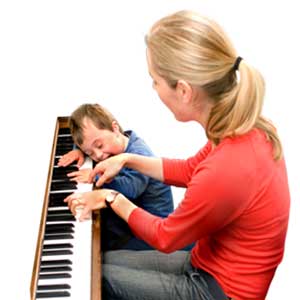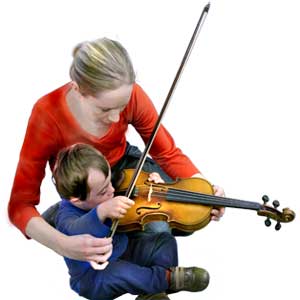Music Therapist
Tasks & duties

Music therapists may do some or all of the following:
-
identify and assess clients' abilities, strengths and needs
-
plan individual music therapy programmes to improve, restore or maintain clients' health or work towards their development
-
set non-musical personal and individual goals for clients, and evaluate their progress
-
use music experiences such as listening to music, playing instruments, moving to music, composing music, improvising and singing as therapy
-
learn new repertoire
-
look after musical equipment
-
keep accurate records of music therapy sessions and write reports on clients
-
be involved in research projects to assess the effectiveness of music therapy
-
educate other professionals about music therapy
Specialisations
Experienced music therapists may specialise in working with specific groups such as people with visual impairments or eating disorders, or patients in psychiatric hospitals. They may also focus on teaching or research in the music therapy field.
Skills & knowledge

Music therapists need to have:
-
knowledge of and the ability to play in, a range of musical styles
-
the ability to play a range of accompanying musical instruments such as a keyboard and guitar
-
the ability to improvise and compose music
-
vocal skills
-
good communication and listening skills
-
observational skills
-
counselling skills, including knowledge of group dynamics
-
ability to work with a range of people, including children and the elderly
-
an understanding of different cultures
-
knowledge of human development, including abnormal development
-
knowledge of the psychology of music
-
good planning and organisational skills
-
record-keeping skills
Music therapists may also need to have business skills if they run their own practice.
Entry requirements
To become a music therapist you need to complete a two-year Masters of Music Therapy. Before being accepted into a music therapy tertiary training course, you need to attend an interview, and pass an audition prescribed by NZ School of Music to demonstrate your musical skills. This requires degree level or equivalent music skills.
The first year of the Masters programme involves papers with a specialised music therapy focus and completion of a work placement. In the second year you will undertake research and casework.
Secondary education
A tertiary entrance qualification is needed to enter further training. Useful subjects include English, music, drama, dance, health, biology, human development, social studies or languages, including Maori.
Training on the job
The first and second year of postgraduate training involve clinical placements where music therapists are supervised and gain experience on the job.
To maintain their registration, music therapists are required to complete ongoing professional development. This includes attending workshops and conferences in their specialty areas, and keeping up to date with professional journals.
Registration
Music therapists must be registered with the New Zealand Society for Music Therapy registration board.
Useful experience
Useful experience for music therapists includes:
-
playing, performing and composing music
-
teaching
-
health work such as nursing, nurse aiding, physiotherapy, occupational therapy or counselling
-
work with people with disabilities
-
work with children, the elderly or people from various cultures
Related courses
Music
Rehabilitation Therapies
For more information, please refer to Career Services.
Document Actions
